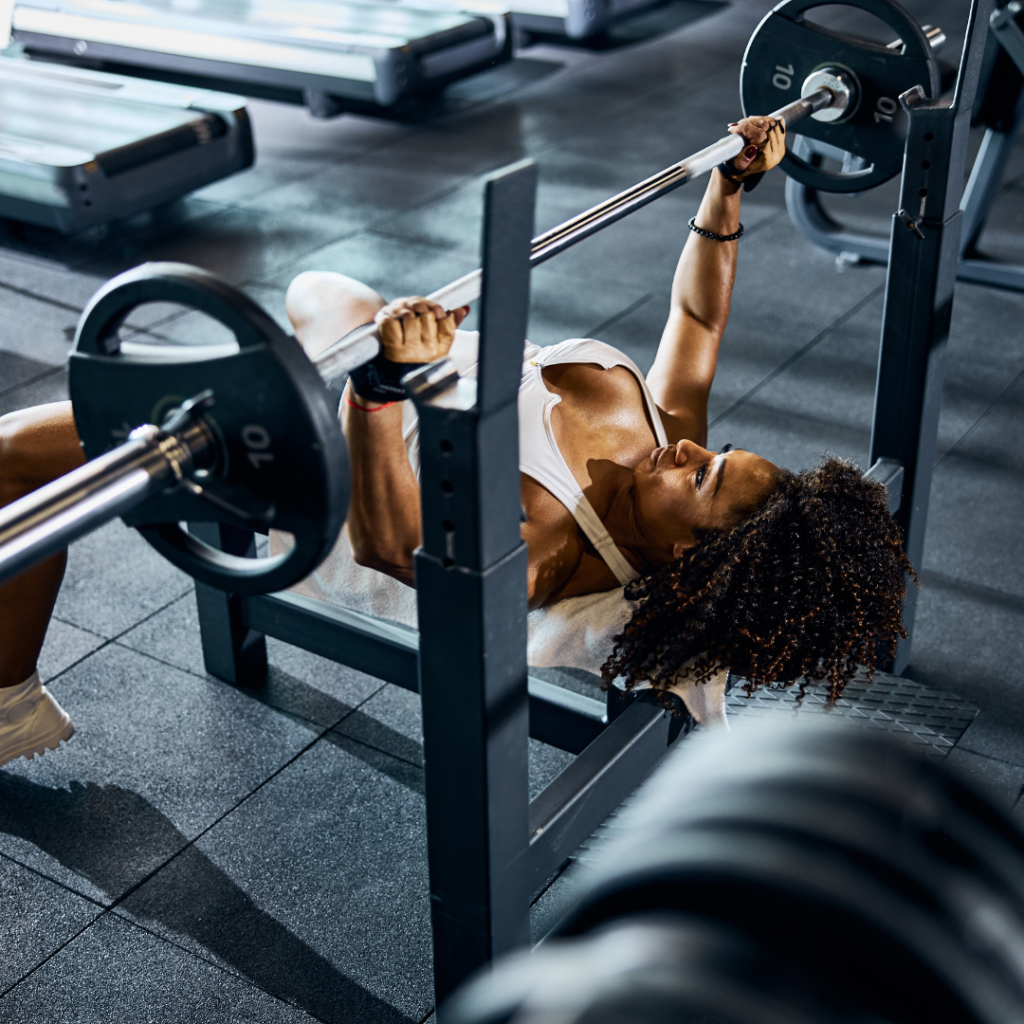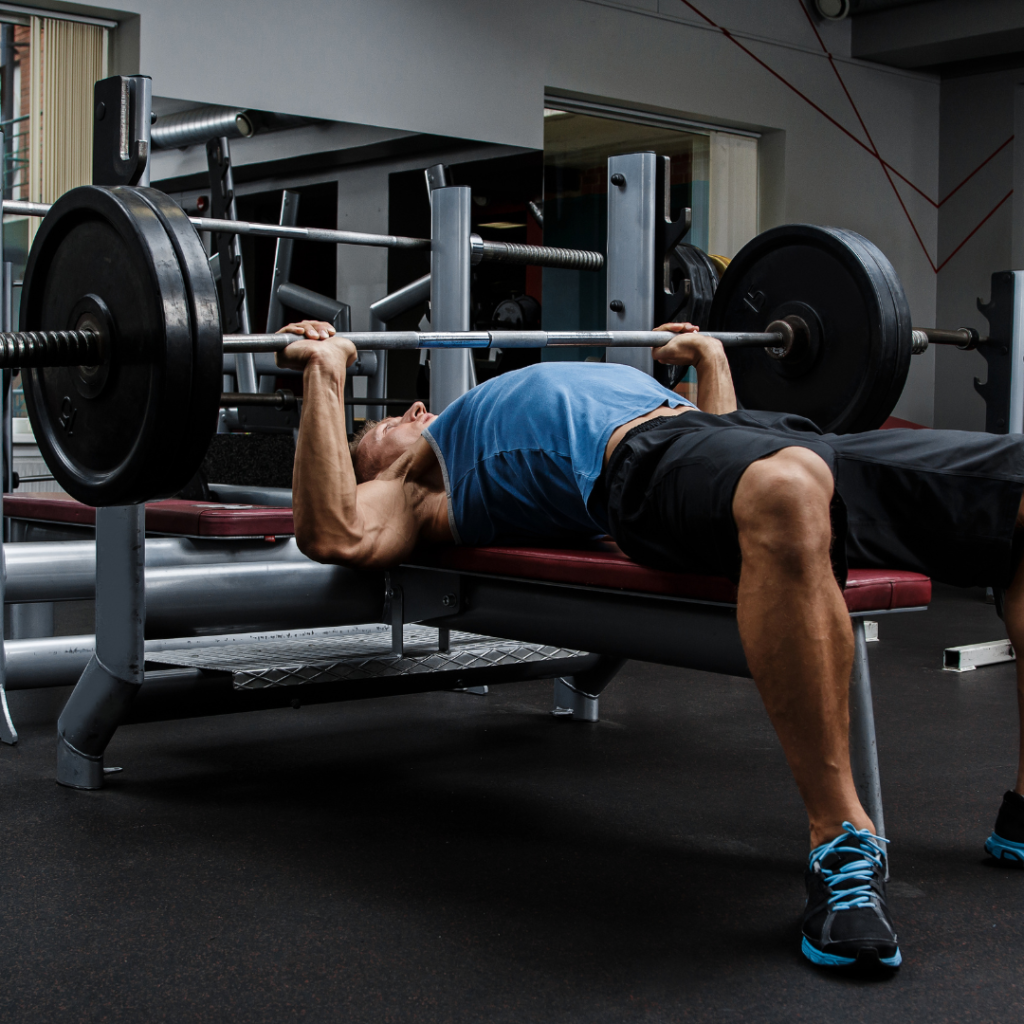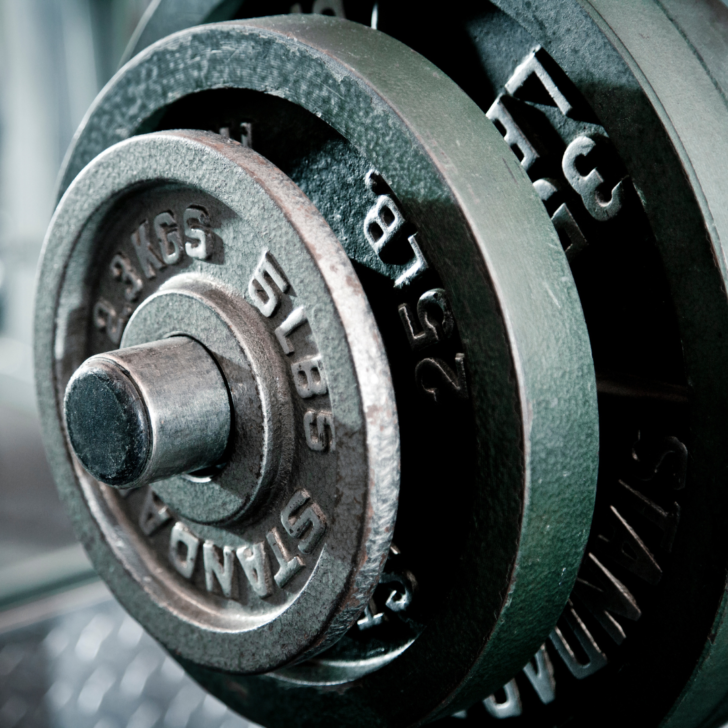When it comes to strength training exercises, there are few more iconic moves than the bench press.
Whether you’re a fitness enthusiast or an aspiring bodybuilder, most of us have at least tried our hand (or rather, arms) at this classic exercise.
But how much should you be able to bench press?
Well don’t worry – this blog post is here to help answer that very question!
In addition to helping you determine your ideal goal number for lifting on the bench press, we’ll also provide some tips and tricks for improving your form and posture while performing this exercise so you can reach your goals quickly and safely.
So put down those weights (for now), grab a seat at your computer/tablet/smartphone and let’s get started!
Factors To Consider
When it comes to how much you should be able to bench press, there are a few factors to consider:
- Gender
- Training level
- Age
- Body Weight
- Gym Goals
By taking all of these factors into account, you can better determine how much weight you should be lifting on the bench press.
For Women

When determining how much a woman should be able to bench press, it’s important to factor in a variety of components such as age, body size and shape, overall physical condition, and strength training experience.
Bench pressing targets the upper body, primarily the chest, shoulders, and triceps.
It’s essential to establish a baseline for each individual tailored to their unique circumstances.
Age plays a crucial role in evaluating one’s fitness performance.
As we age, our muscle mass and strength tend to decline, rendering heavy lifting more challenging.
Younger individuals, particularly those in their 20s and 30s, may have a higher capacity for strength training and therefore be able to bench press more weight compared to older individuals.
Body size and shape are also determining factors in bench pressing capacity.
Generally, individuals with more muscle mass or a larger frame will possess a greater potential for lifting heavier weights.
It’s important to take into account a woman’s body weight, as strength is often relative to one’s body size.
For instance, a woman weighing around 130 pounds might be able to bench press 60-70% of her body weight, or approximately 78-91 pounds (35-41 kg).
On the other hand, a woman weighing 160 pounds may be able to bench press around 80-100 pounds (36-45 kg) at the beginning of her training journey.
A person’s overall physical condition contributes to their ability to safely and effectively perform a bench press.
Women with a history of consistent exercise and strength training are likely to meet higher benchmarks in weightlifting.
In contrast, individuals new to exercise or recovering from an injury may require a gradual build-up of strength through progressive resistance training.
For Men

To gain an insight into your fitness, it is essential to consider factors such as age, size and shape, physical condition and strength training background.
Generally, an average male should be able to bench press 90% of his body weight in typical situations.
For those who are already fairly fit and regularly attending the gym, 1x your bodyweight should be a great benchmark for success.
By contrast, those with a higher level of fitness or considered elite athletes should be able to hoist more than double their bodyweight.
At 220lbs, a man in his 20s would be able to lift 225lb at an intermediate level, 305lb at advanced, and 380lb at elite.
Men ordinarily possess the most strength between their twenties and thirties, with an eventual decrease in power as they age.
Thus, a man at his prime would have the capability to lift 100% of his body weight when performing basic exercises or activities.
Generally speaking, a man in his 30s, at an intermediate range of fitness could lift approximately 90% of their body weight.
However, as they age and reach their 40s this number drops to around 80%, while further exceptions may apply.
Gym Goals
The amount of weight you can lift on the bench press is largely impacted by your individual fitness goals.
If you’re a regular at the gym who focuses on weight training to stay fit and healthy, then your goal should be to bench press one times your body weight.
With consistent effort, you can reach a respectable level of bench pressing strength.
Don’t be too quick to judge a person’s strength simply by the amount of reps they can perform on the 225 bench press.
A mere sliver of the population has the ability to bench 225, which clearly indicates you have admirable strength and physical condition.
For athletes, regardless of their sport—from football to swimming and basketball—being able to bench press his/her own body weight is a desirable feat.
It gives them an edge in any activity they participate in and the ability to compete at higher levels.
Conversely, for those who participate in strength-based sports (such as powerlifting) or physique-based athletics (like bodybuilding), hitting impressive numbers on the bench press is a requirement.
As an example, a novice powerlifter must be able to bench press at least twice his own bodyweight – or more.
For top-tier powerlifters, lifting weight equivalent to five to seven times their total body mass on the bench press is a goal they strive for.
For bodybuilding competitions, it is essential for athletes to look both muscular and aesthetically pleasing.
To achieve their goals, bodybuilders exercise at a higher volume than what is typically called for in training programs; therefore, they do not need to lift extremely heavy weights on the bench press.
For amateur physique athletes, bench pressing between 0.80 and 1 time their body weight is an impressive feat!
On the other hand, those who have undergone rigorous physical training for physique competitions would be able to bench press around twice their body weight.
How To Increase Weight

Once you’ve determined how much weight you should be able to lift on the bench press, the next step is learning how to get there. Here are some tips and tricks for increasing your weights safely:
Start with lighter weights and focus on form – Good form is essential when it comes to any exercise, but especially when it comes to the bench press. Make sure to start with lighter weights and focus on keeping your body in the correct position while doing each repetition.
Train with a spotter – Having someone to spot you while you’re lifting can be an invaluable asset. Not only can they provide motivation and help keep you focused, but they can also ensure that your form is correct and that you do not lift too much weight.
Mix up your workout routine – Doing the same exercises every day can become boring, so it’s important to mix up your workout routine with different exercises for the chest, arms, back, etc. This will help keep your workouts interesting as well as build strength in other areas of your body.
Take regular breaks – Taking regular breaks between sets or workouts is essential in order to give your body time to rest and recover. This will help reduce the risk of injury as well as make sure that you are able to push yourself each workout.
Try different variations of the bench press – There are many variations of the bench press that you can try, such as the incline bench press, decline bench press and even a single arm bench press. This will help target different muscles in your chest and arms while still performing the same basic exercise.
How To Calculate Your 1 Rep Max (1RM)
You can use a 1RM calculator to find out your max.
The formula for the max bench calculator uses the following variables:
1RM: 1RM = W x (1+(r/30)).
Before I dive into the details of how to take the test, let me explain it first.
To accurately calculate your strength level, you need to find a weight that pushes the boundaries of your physical capacity.
Once identified, perform as many reps as possible and measure those results against this established benchmark.
When selecting a weight, choose one that is heavy enough to require some real effort for each lift, yet still light enough for you to perform multiple reps.
For the formula mentioned above, this weight will be referred to as “w.” A typical 30-year-old man weighing 180 pounds could end up settling on about 165 pounds when using this equation.
A 140-pound woman of the same age would likely weigh around 75 pounds; however, your results may be more or less than this estimate.
Keep in mind that everyone’s body is unique and will respond differently to dieting.
Conclusion
Ultimately, how much you bench press and how often is going to be dependent upon your goals, experience level, and individual strength.
Be honest with yourself, assess your current level of fitness and progress it slowly over time rather than trying to do too much too quickly and risk injury.
Before you hit the gym, understand what kind of gains you’re aiming for, whether that means strength or endurance, or even just peace of mind.
